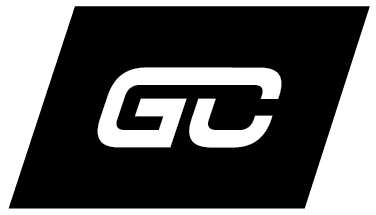HOW YOU VIEW ATHLETES CREATES COMPETITIVE ADVANTAGE
What do sports organizations, athletic departments and teams actually see when they look at their athletes? It is has been something I’ve always wondered.
Do they see assets to be managed and moved like inventory? Do they see young minds needed to be moulded and developed to serve the needs of our future civil society? Do they see future alumni forever associated with the team, league or institution? Do they see walking and talking risk issues that need to be mitigated? Are their athletes a medium solely through which wins are to be achieved? Do they see athletes with unique voices and platforms that can instigate social, philanthropic and community change?
The reality is I don’t know.
If you peel back the curtain on any team, school or organization you can probably find a little of all the above. However, what is mainly reflected back to the athletes? How do they perceive their value to you and who and what they mean to the organization?
At one end of the spectrum you can look at the culture of the Golden State Warriors. These are athletes that are well engaged outside the sport of basketball. They have a head coach that takes definitive political positions. The have players who are actively involved in business and social initiatives. They’ve developed a culture that incorporates winning and that their athletes (and coaches) have lives beyond the game.
In my view, appropriately executed athlete development initiatives can serve as the foundational glue to develop and hold these cultures together. Athlete development specialists can collect the data, develop the insights and create the opportunities to pursue interests beyond the game. However, you need initial leadership that is interested in the data and believes the idea that players are people first and that healthy people are your best athletes.
Alternatively, look at the Maryland Terrapins story, which paints a picture of a coach, training staff, athletic department and university administration so disconnected from the reality of what their mission was, that they in effect killed one of their own athletes.
In a unique twist, the initial crisis (the death of Jordan McNair) wasn’t enough to provoke change within the culture. It was the fact players recognized that the death had not provoked a culture change and elected to be vocal about it. Only when that story made it to the public eye, were the collective brakes applied and a reassessment of what the real purpose of both the football program and athletic department’s mission was and the culpability of those who created a toxic culture. It was only at that point that the school accepted its moral obligation not only to the player who passed, but to the rest of the team still stuck in a bad environment.
So how do you view your athletes?
Whether you are a coach, administrator, trainer, GM, owner, a league official or a fan, you are going to bring your personal experiences and biases to the table. That is normal.
However, regardless of how you come to the discussion, the view that athletes should only be athletes and fall in line is over. Extinct. If you ascribe to this view, not only have you missed the boat, you aren’t even on the coast. The research is becoming ever more clear.
To perform athletes need outlets away from the game. They need ‘plan b’s’ not as a safety valve for a failed athletic career, but because it helps them play better. They need to explore realities outside of their sports bubble and they need to be encouraged to do so, not only because it will help them perform better, but it will help them be better people. Better people make better athletes. Athlete development specialists have the skill sets to make this happen. They are uniquely positioned to assimilate information from a broad array of data to drive fundamental positive change not only for athletes, but for organizations.
The introspection required to reimagine how athletes are viewed within their respective teams, institutions and organizations is typically governed by the likelihood of a crisis forcing change. Another path to change, is an individual athlete articulating or forging another path forward despite cultural or institutional obstacles.
My advice having been a DI coach and an athlete development specialist working with colleges and professional athletes and organizations? Proactively reimagine how you view your athletes before circumstances require you to do so under suboptimal conditions.
Game Change was founded in 2011 to serve and enhance the athlete development needs of major professional and elite sport organizations and athletes. Game Change specializes in customized research and assessment services, the development of applied interventions and resources designed to provide long-term positive outcomes for organizations and individual athletes. Game Change believes strongly in sport as a catalyst for societal change and adheres to the philosophy of ‘changing the world one athlete at a time’.



